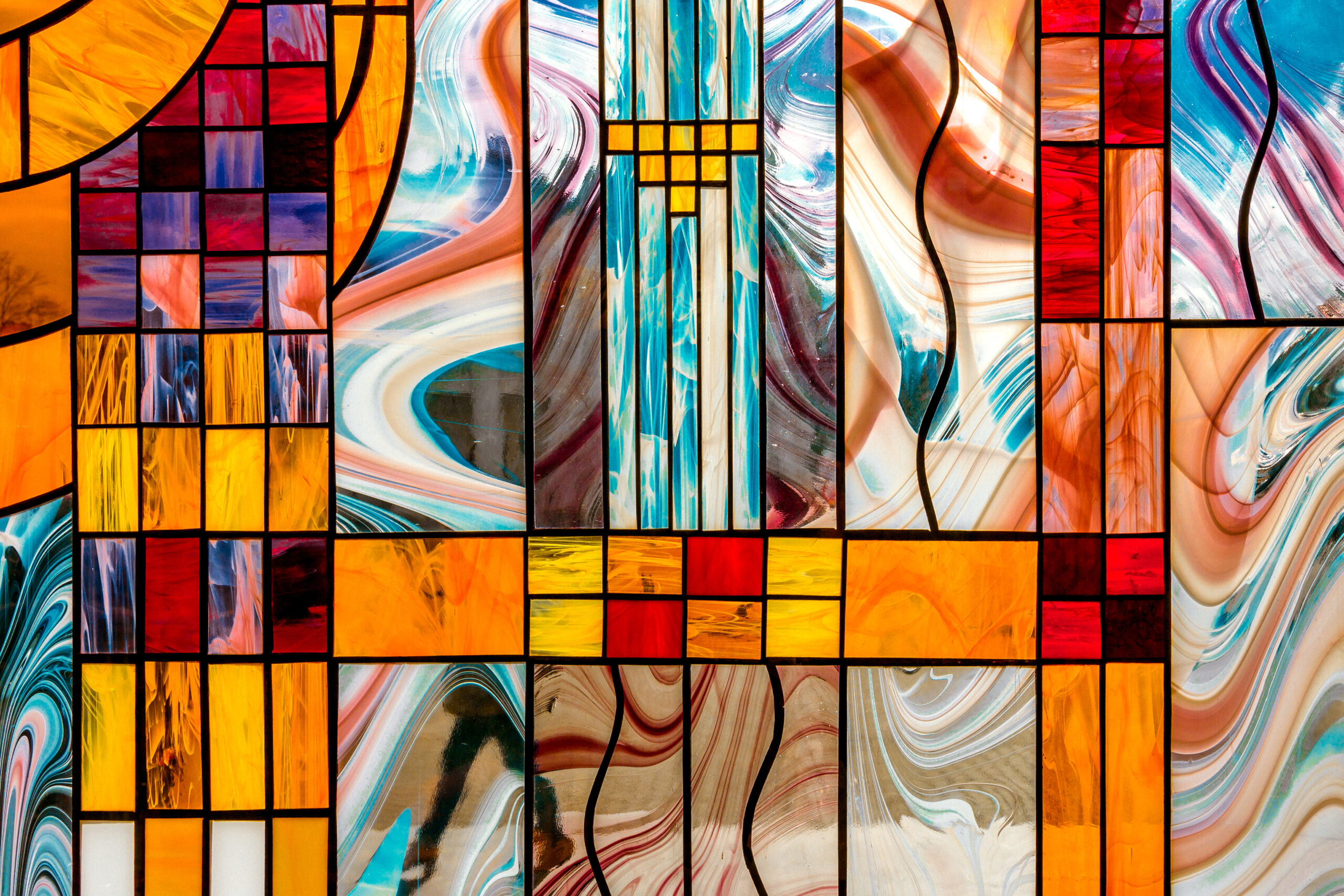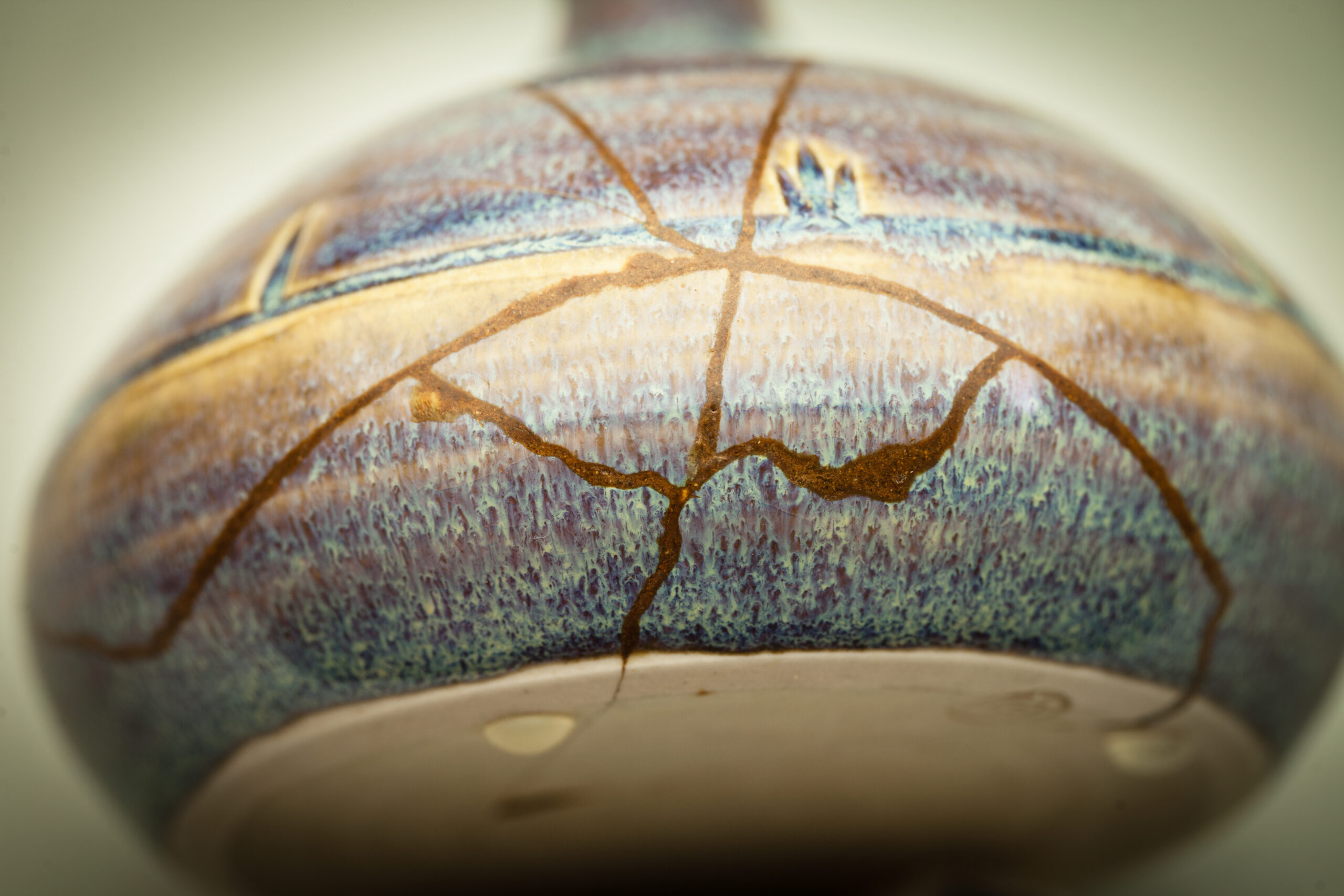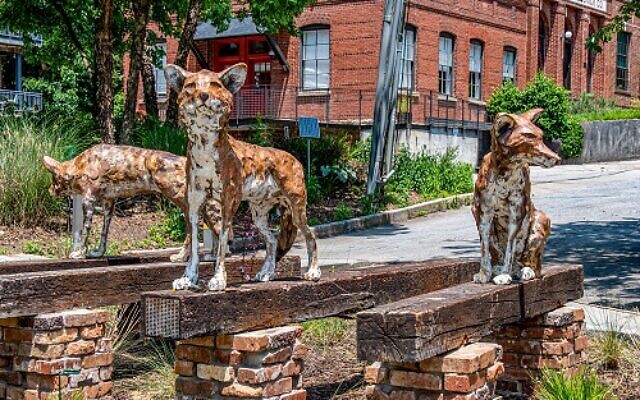Katie Steedly’s first-person piece [The Unspeakable Gift] is a riveting retelling of her participation in a National Institutes of Health study that aided her quest to come to grips with her life of living with a rare genetic disorder. Her writing is superb.
In recognition of receiving the Dateline Award for the Washingtonian Magazine essay, The Unspeakable Gift.
Enter your email here to receive Weekly Wide-Awake
Building A Better World: A Gratitude Conversation with David Sawyer
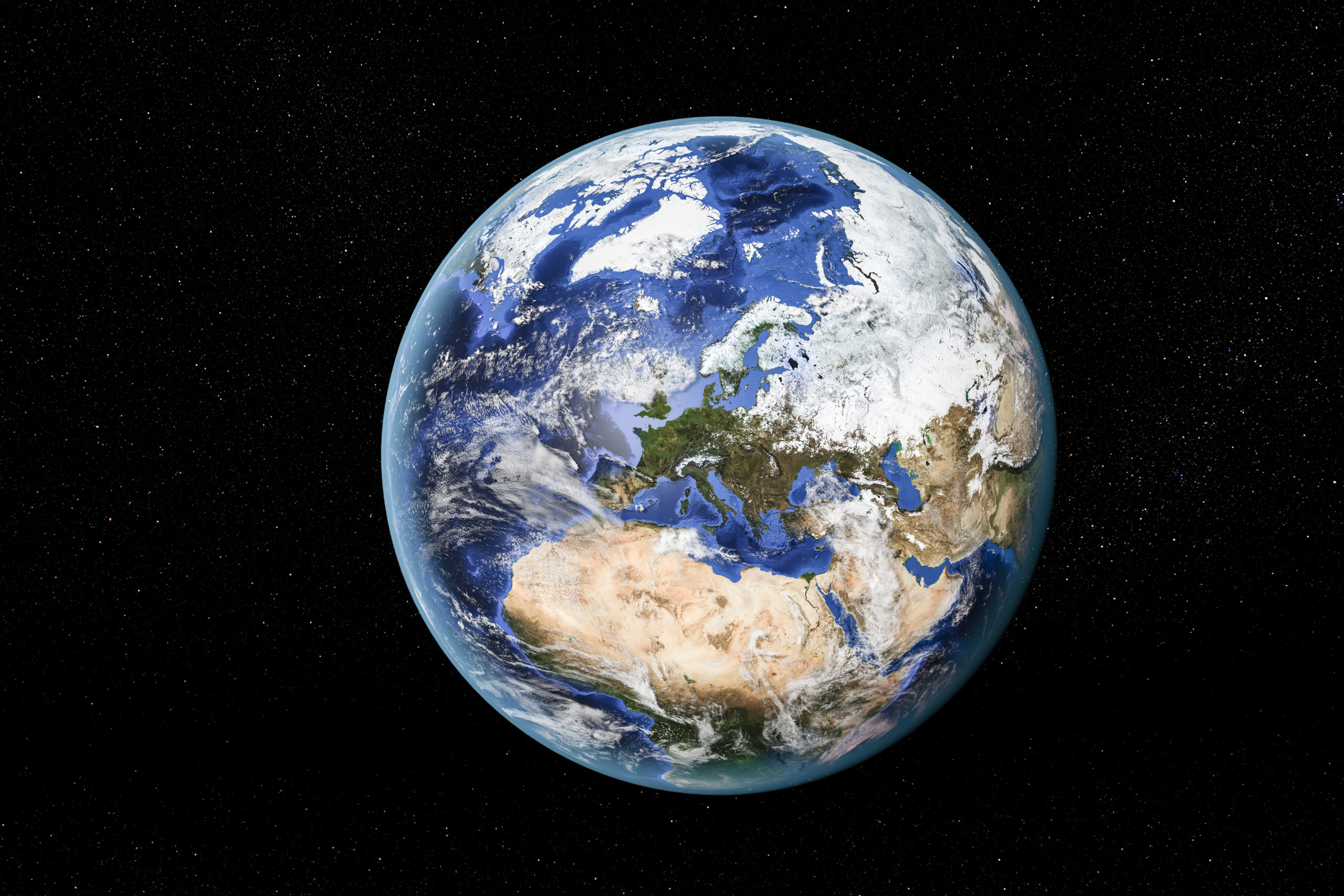
May I become at all times, both now and forever, a protector for those without protection, a ship for those with an ocean to cross, a bridge for those with a river to ford, a sanctuary for those in danger, a lamp for those without light, a place of refuge for those who lack shelter, and a servant to all in need for as long as faith endures, and for as long as living beings remain. Until then, may I too abide to dispel the misery of the world.”
Shantideva
KSC: What are some things you are grateful for?
DS: I think, right now, the thing I am most grateful for is the work I am able to do in the world and the opportunity to contribute and to shine at full capacity even in times of darkness. There is a beautiful Buddhist prayer from eighth century AD by a monk named Shantideva, and this is the Dalai Lama’s favorite prayer:
May I become at all times, both now and forever, a protector for those without protection, a ship for those with an ocean to cross, a bridge for those with a river to ford, a sanctuary for those in danger, a lamp for those without light, a place of refuge for those who lack shelter, and a servant to all in need for as long as faith endures, and for as long as living beings remain. Until then, may I too abide to dispel the misery of the world.
So, I am grateful for the work I am doing in the world.… I am also grateful for the bright lights and teachers from all traditions who guide us onward, and the religious teachers and the teachers not in formal religions, the wise men and women of this planet who continue to shine their lights for all of us. Super grateful for the wise men and women on this planet and the teachings they have provided us and continue to provide us. I am really grateful for the community of inter-committed change makers, of which you are one.
I don’t really care what sector you are in because one of the things my career has shown me, sort of to my surprise — I did not expect it to show me this, and you knew me in the AmeriCorps, national service, social justice, racial equity period working with the White House, and all that kind of stuff — I always believed that the social sector, the nonprofit sector would be the place where change happens, and in effect our sector would be called upon to drive positive change on the planet. Having worked with government leaders, leadership coach to a mayor, and worked in the private sector. What I have come to realize is that there are good people waking up and doing good work in all sectors. When I became the leadership coach, [and] a close personal friend of the president of an oil company — which would be the least conceivable place, because it could be so easy to make an enemy of that person, what I learned was that the men and women inside are not the enemy. The system is broken. There is no question about that, and that is what the election has just shown us is that the system really is not working, and that just incrementally making little changes to it is not going to be sufficient. The system is fundamentally flawed. The people that are in the system, there are good actors in bad places and good actors in good places. I see it in nonprofit sector all the time. That is by far the bulk of where my work is. People who are confused and making things darker around them, wherever they are. That is one point.
Just this year I have had kind of a stunning realization, along with my colleagues at Converge. I have been able to, and this has been like the biggest year of my life in terms of professional exposure since the early keynote speeches and AmeriCorps. What I believe is this: change is changing. The way we make change itself is changing. We face a world of what the design community would call ‘wicked problems.’ Complex, ambiguous, nonlinear, impossible problems, so tangled up in other problems we don’t even know where to start. Like violence against men and women and girls, and sexual violence, and violence against people of color, and violence against cops, and violence against the earth. You know, it is a very violent world, and some of that violence is out front and visible, and some of it is in the endemic violence of poverty itself, and all the negative things that that creates. So, what I have realized is that we keep focusing on the next new, what the next new thing [is], who is going to solve the problem. Like social entrepreneurs. I used to think that the future of civilization depended on social entrepreneurs, the next creative person with a big idea. I think social entrepreneurs and social sector leaders are necessary but not sufficient, because the bottom line is that even if you have some new innovative idea it has to work its way through all the different systems of society, and therefore we need to focus more on how, and less on what. So, we coined the term ‘network entrepreneurs’ to describe for us the evolution of social entrepreneurs. A network entrepreneur pulls together people from all walks of life, all points of view. Whatever the cool idea of the day, is it is going to have to be implemented through a robust complex collaboration, or a network of people who have committed themselves to positive change. A lot of our work has been in making complex collaborations across sectors work.
KSC: That is hard work. It is being a translator across different languages.
DS: It does, and [it] requires you creating enough psychological safety and a good dynamic so that people can be honest about who they are and what their lived experience is.
In our work right now, we spend a lot of our time building trust-based relationships. To do that, we say that you have to understand someone [and] not only their external context: ‘I see your gender;’ ‘I see your skin color;’ ‘I see your relative age;’ ‘I know your job and your title’, but [also]your internal context: ‘Who are you?’ ‘What motivates you?’ ‘What makes you cry?’ ‘What makes you mad?’ ‘What drives you?’
That is something that I am doing in a very deliberate way with corporate CEOs. That true story. Not the sanitized version. Know the real story. The people who believed in you when you did not believe in yourself. You know. The tragedy that shaped your life. Once you hear that. Whoo! Things are different! You might actually get things done together. So, you know we have the head of a timber company. We just built a network in the Santa Cruz region to steward the region where natural systems thrive for generations to come. We have life stories and we have the head of the timber company who has been cutting redwoods for five generations in the same life story group with the environmental activist who has been fighting the timber company and head of a tribal group. When you hear the stories of other people, you find so much common ground that you would not have seen otherwise.
KSC: How do you practice gratitude?
DS: To be honest there is a lot I am not grateful for, and I was a little nervous about taking the call with you. What am I grateful for? I am grateful? How do I practice gratitude? Well, you know I have a formal spiritual practice. I sit twice a day, every day. I read all sorts of stuff. I basically crash through my shadow self, you know, to the place of goodness underneath it. What I am most grateful for is realizing there is goodness in the human heart. There is basic goodness in my heart, and if I am in touch with that basic goodness in myself, I see it in others. If I am not in touch with the basic goodness in myself, then I don’t see it in others. I see the other. I see the enemy. I make people the enemy who aren’t the enemy. So, I practice by staying on my inner journey.
What we are trying to help people realize is […] the way change is changing. In particular the foundation community, which by the way is estimated at 353 billion in 2015 in America. That money did not change the things that they were investing in. They were investing social entrepreneurs, and nonprofit organizations with the next best big idea, but they weren’t investing in complex collaborations. So, a lot of my work right now is to try to convince the foundation community to take make an investment, ten percent or whatever, and put it into complex collaborations. Because we are moving into the world of systems thinking. Right? Systems-wide solutions require systems-level resources.
Let me go back. I gave a talk in 2000: “What are the Four Competencies of Leadership for the New Millennium?” I read it again recently and I was like, “Yep! That still holds true.” So, number one, remember the dream. It is not enough to fight evil. You have got to remember the dream. The dream of safe streets, and clean air, and pure water, and strong communities, and healthy families. That dream is a dream of beauty, and a dream of goodness, and a dream of a healthy vibrant whole functioning kind world. So, you need to remember the dream. It is not just about the fight, about fighting what you are against. It is also about fighting what you are for. Number two, cross every kind of boundary. This is what John Gardner said, “The future of American democracy depends upon boundary crossers.” You know, I can cross a boundary and find common ground with people very different from myself. One of my colleagues says, “Have conversations you don’t usually have with people you don’t usually have them with.” Number three, keep your house in order. If you are an executive director, you have to keep your house in order because you are an organization. If you are a program director, keep your house in order for your team. If you are a researcher . . . whatever your house is, whatever your field is, you have got to keep it in order. Number four, you have to keep yourself in order. You can’t remember the dream, cross boundaries, and keep your house in order if you can’t keep yourself in order, and that is why you need to stay on top of spiritual practice if you are spiritual, or just relaxation and diet and exercise and all the rest of the things to keep yourself in order, “sharpen your own saw,” as Stephen Covey would say. So those are the four things and I think they remain true.
KSC: They tie back to the idea of what is your gratitude practice. Doing those things, those elements of leadership, can be thought of as a gratitude practice. By keeping your house in order. By keeping your body in order. By keeping the dream front and center. That kind of thinking is a gratitude practice, in a way.
DS: It is, and I think I would just expand. You know for me, I love the word gratitude, but I think it is broader than that for me. For me it’s honor. Honoring is the word that I like better. Are you grateful for the shadow? Well no, not really, but can you honor the shadow? Yes. Are you grateful there is suffering in the world? Not really. Can you honor that suffering, and work to alleviate it? Yes. So, for me gratitude is an element of a larger concept of honoring because this is reality. Here it is.[It’s] not going away. You can argue with it every day of your life, but it is what it is, and if you honor it, that gives you a way in, a way to have a positive influence on the evolution of things.
Gratitude has kind of been trivialized by the new age movement to be the end all and be all. If I can just be grateful for everything. Well really. Come on, be an adult and be grateful that you have discernment. Be grateful that you are passionate. Be grateful that there are things that you will not tolerate.
KSC: The notion of honoring. One of the things that keeps coming up for me in these gratitude conversations is gratitude is truly about being present. Present to what is. There is this presence to what is. Being present to what is. Whatever it is. When you are taking stock. When you read the prayer of Daily Examen in the Jesuit tradition, it is about truly honoring what is. It is noticing. It is noticing when things don’t rub right. It is hard in the midst of all that is to take that breath.
DS: The mindfulness you speak of: when you are mindful and present to what is, you are in the here and now. You are aware, and everyone is always in the here and now, but you are aware of the here and now. I read something recently that said something about the here and now, the potency of it. It is only in the here and now that the past is healed, and it is also in the here and now that the future is programmed. I love that. Like right now you and I having this conversation. You and I are programming a positive future for ourselves and the people around us because we are strengthening all that is good by having this honest dialogue about it and whatever wounds we have from the past, and we all have a gazillion of them, are healed in the present. They are not healed by ruminating about the past. They are healed by your mindfulness in the present.
So, I really love the way you are talking about being present to what is, because that’s actually the best way to heal the past and program the future.
I love what Peter Drucker says about this. The best way to predict the future is to create it.
This is something to be grateful for. It is a terrifying moment. We the people have to take back the power and empower ourselves and others to create future we believe in. To remember the dream, to cross the boundaries, to keep our house in order, to keep ourselves in order. What is the word? We have been radicalized. We have been galvanized. Like Wow! Damn, we got to get to this, and right now, and not look to anything other than ourselves, and the power of working together. How great that the flaws in the system have been so thoroughly exposed. I think that the fact that Trump got in and Brexit and all the rest of the things going on have shown us that the operating system, literally the operating system of civilization — not of the planet because there is nothing wrong with the operating system of mother earth — but the operating system of human society is truly utterly and unequivocally broken. It’s broken, and so it is like, “Okay. Let’s wake up. We need to construct a new system.” I love what Buckminster Fuller said, “You never change things by fighting the existing system. You change things by creating a new system that makes the old system obsolete.” I think that is our challenge and opportunity right now, and something that I am grateful for. So, Alright. Deep breath ladies and gentleman. It is time for a new operating system for civilization, and it has got to be based on love. Not romantic, stupid, sentimental love. Love meaning deeply honoring and respecting the other.
I don’t know why we lost sight of that Maybe we never got it, or we only thought we got it, but it is time for those of us who have got it to bring it out into the open because there will be no human civilization until we move into that operating system that works. I love what Teddy Roosevelt said, I have been thinking about US Presidents, “This country will not be a good place for any of us until it is a good place for all of us.” Boom. Mic drop.
KSC: Is there a connection between gratitude and service?
DS: Yep. I think there is. I am sure there has got to be existentially a connection between gratitude and service. You know, if you are grateful for what you have then you put it in service to the world. Audre Lorde helped me heal my own white guilt and anguish about white privilege and all that when she said don’t waste a moment being ashamed of the privilege; make it part of your power for change. I had no more choice into the skin color and body and family I was born in to than anyone else. So, to whom much is given much is expected, and in that sense you are grateful for your relative first world problems, shall we say, and you know, when you are grateful for what you have been given, you put it in service to the world. Isn’t that what you have got to do? So yes, I think that is part of the connection.
There is a shadow side to service. Sometimes the path of serving itself, even if it starts from a path of ego, it can evolve as you develop empathy and compassion for the suffering of the world. Then you can evolve. I am like, fine get into it for whatever reason you get into it, but don’t stop on the path of serving until you have gotten the lessons you need to get out of it, too. It is better to give than it is to get, even if all you get is a chance to give. It is better to give than it is to get. Even if all you get is a chance to give, just be grateful for the opportunity to give.
You probably know Adam Grant’s work on givers, takers, and matchers. Adam Grant, a professor at Penn. A wonderful guy. Blown up in management literature. He looks at the most successful people in the world. Basically, a giver gives more than they take, a taker takes more than they give, and matcher will give as much as they get. So, he analyzed through a research project and wrote about it. The most successful people in the world are givers, but they are not doormats. They give, and they give, and they give, and they give, but they don’t give to the point of depleting themselves because they give to themselves, as well. They give themselves the healing, whatever they need, to keep their own house in order, to keep themselves in order. Takers may succeed in the short-term, but it is the givers who make the world go around, and that is something to be grateful for. I think, in a way, there [are] way more of us givers than there are takers. I want to believe that, and I am hoping that this kind of moment, kind of flushing the shadow out into the open, will help us find [our] way forward on planet earth.
And by the way, speaking of things to be grateful for. The earth. My God the earth. Just the earth. The magic and wonder of the planet and of nature, you know.
KSC: Is there a leadership component to gratitude?
DS: You could draw a lot of parallels between leadership and gratitude, you know. I love Greenleaf’s concept of the servant leader. Greenleaf asks a bunch of provocative questions, you know. “Who is the enemy?” You know this was in ’68 when he wrote that. So, this was like Kent State and the streets were blowing up. When they had everything going to hell. “Who is the enemy?” Is it poor people? Is it white people? Is it black people who are angry? Is it the system? Is it corporations? Is it wealth? ‘Who is the enemy?’ Is it corrupt political leaders? He is like, “Nope, that is not the enemy because if you got rid of all those things they would all be back in a generation or two because this is earth and we are a widely imperfect species.” The enemy is true, gifted servant leaders who might lead us to another world, but choose not to. Greenleaf also says, “Well how do you know if someone is a servant leader?” He says there is only one way to know. He says, “Do the people around the leader become stronger, healthier, more whole, more complete human beings? That is the only way you know.”
So, I am grateful.
A true leader is grateful for the people around them. Max Dupree, who wrote Leadership of the Heartsaid the first job of a leader is to define reality, and the last is to say thank you. Define reality means this is the problem we are trying to solve. This is the direction we are going. This is the world we are living in, define our shared reality. The last is to say thank you because the people who sign up and follow the leader are literally shifting their neural pathways. The last thing a leader says is thank you. Thank you for believing in me. Thank you for letting me lead. Thank you for trusting my instincts. Thank you for following and building this vision.
Be grateful for the people around you, and grateful for the capacity to lead. Everyone is all ripped up about leadership because there is a power dynamic involved in it, but damn it, slice it any way you want it. Leadership is an absolutely essential thing. It is just not the old command and control leadership. In the old power dynamics of leadership, it is power against and power over. Right? In the new dynamics, it is power among, power for, power with, and power within. Power is shifting. That kind of leadership will always be required. The kind of leadership that creates more power for people, and doesn’t take power or command power or abuse power.
About Katie
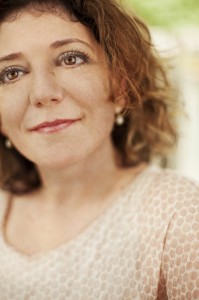
From Louisville. Live in Atlanta. Curious by nature. Researcher by education. Writer by practice. Grateful heart by desire.
Buy the Book!
The Stage Is On Fire, a memoir about hope and change, reasons for voyaging, and dreams burning down can be purchased on Amazon.


